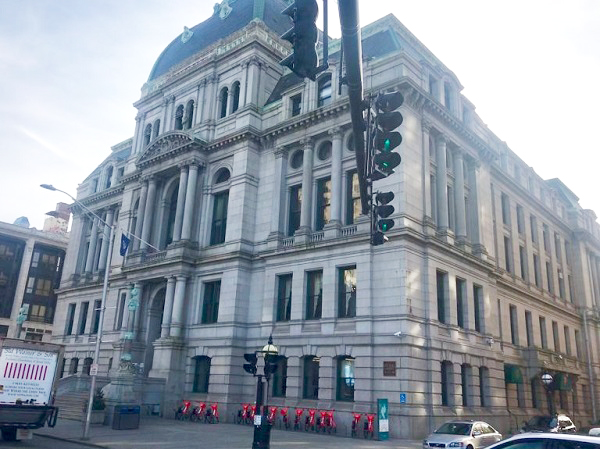A proposal to limit the number of student renters per apartment in Providence has sparked fears that such a move would exacerbate the severe affordable housing shortage across the city.
The city’s ordinances already prohibit more than three college students from living in a single-family home, but a proposed amendment introduced by City Councilwoman Helen Anthony would extend the restrictions to units in multifamily homes. City officials say the new amendment would apply to approximately 29,000 units.
Anthony’s proposal has numerous supporters, particularly among homeowners who live in neighborhoods with high concentrations of college students on the East Side near Brown University and in Elmhurst near Providence College. But it also has numerous detractors, including students and owners of multiunit properties.
The proposed change fueled a heated debate at the City Council’s ordinance committee meeting on Oct. 19. Another hearing is scheduled for Nov. 16.
Anthony issued a statement that described college campuses as “bleeding into our neighborhoods, creating pressure on current housing stock. We need to do what we can to preserve housing for our residents and to maintain our neighborhoods.”
She said the amendment was intended to “spark conversation about a new path forward.”
Council President John J. Igliozzi called Anthony’s idea an “overreaching response” to a local issue of large parties, unruly behavior and trash overflow. “[The proposal] has the potential to have a negative impact citywide,” he said, referring to the implications on housing, which is already in high demand and short supply.
Brenda Clement, director of HousingWorks RI at Roger Williams University, says the affordable housing advocacy group isn’t taking a stance on the proposal. But, she added, one thing that’s not in dispute is that vacancies are “well below” a healthy rate.
“The reality is that there’s just not enough units for everybody,” Clement said.
The American Civil Liberties Union of Rhode Island Inc. submitted written testimony opposing what the organization called an “anti-student” ordinance.
“If four students currently sharing housing space can no longer share it, it means that somebody has to find a new place to stay,” said Steven Brown, ACLU Rhode Island executive director. “If there’s limited housing right now, passage of an ordinance like this can only make it worse.”
Brown says the ordinance would also fail to solve the noise issues. “If the goal was to stop out-of-control parties, they can be started by three roommates as easily as four,” Brown said.
The ACLU already filed a lawsuit in 2016 seeking to strike down the existing ordinance limiting student housing in R-1 zones – or zones for single-family homes – but the state Supreme Court ultimately upheld the ordinance.
If a more-stringent amendment were to be passed, Brown said a new lawsuit is “a possibility.”
For Rita Danielle Steele, president of the Greater Providence Board of Realtors, the amendment overlooks the root of the problem: a lack of city resources to enforce code compliance and hold property owners accountable.
“The problem itself is not the number of student occupants in a property,” Steele said. “The problem is existing code compliance accountability and enforcement. We need to be careful as a community to be mindful of the unintended consequences and targeting of specific groups that shortsighted policies can have.”












Let Brown provide housing for their students, God knows they surely can afford to do so, and leave the peaceful historic East Side neighborhoods alone.